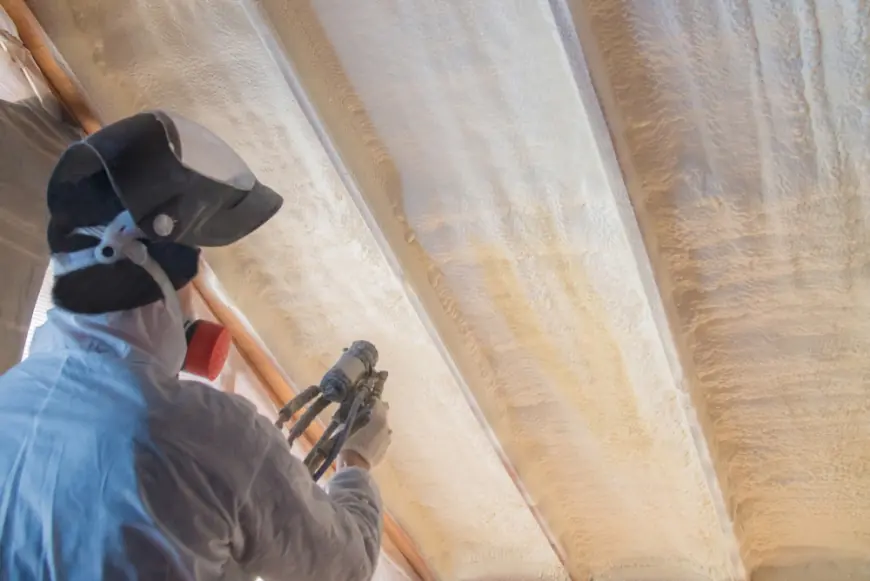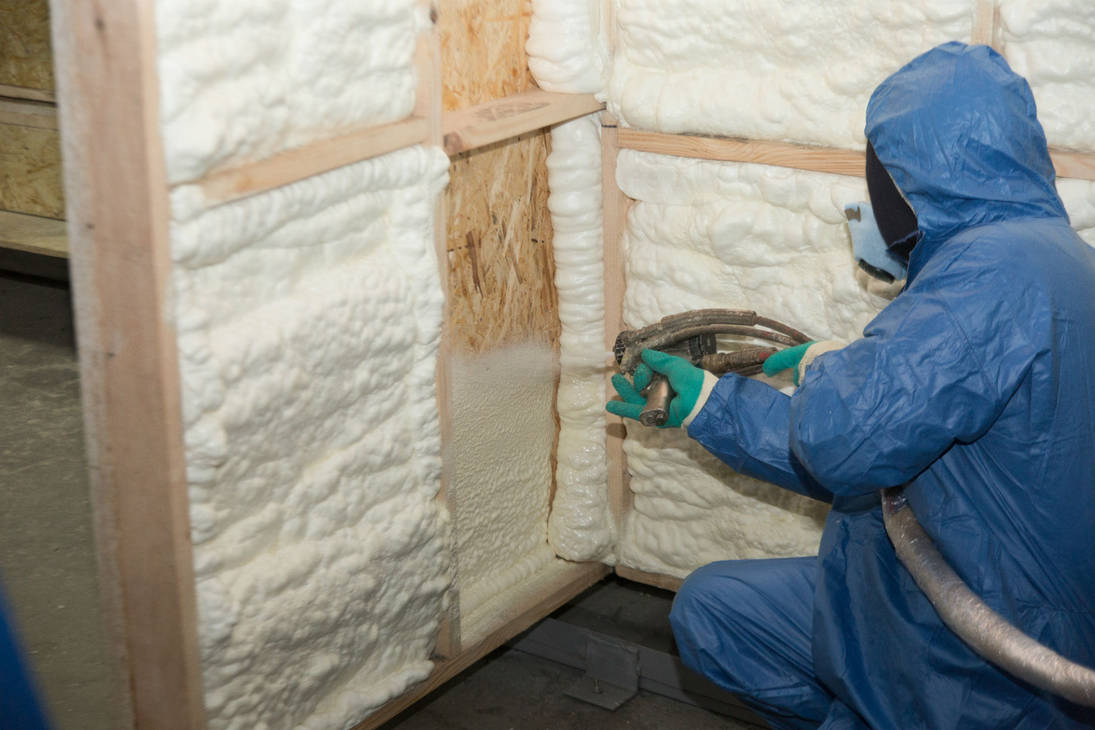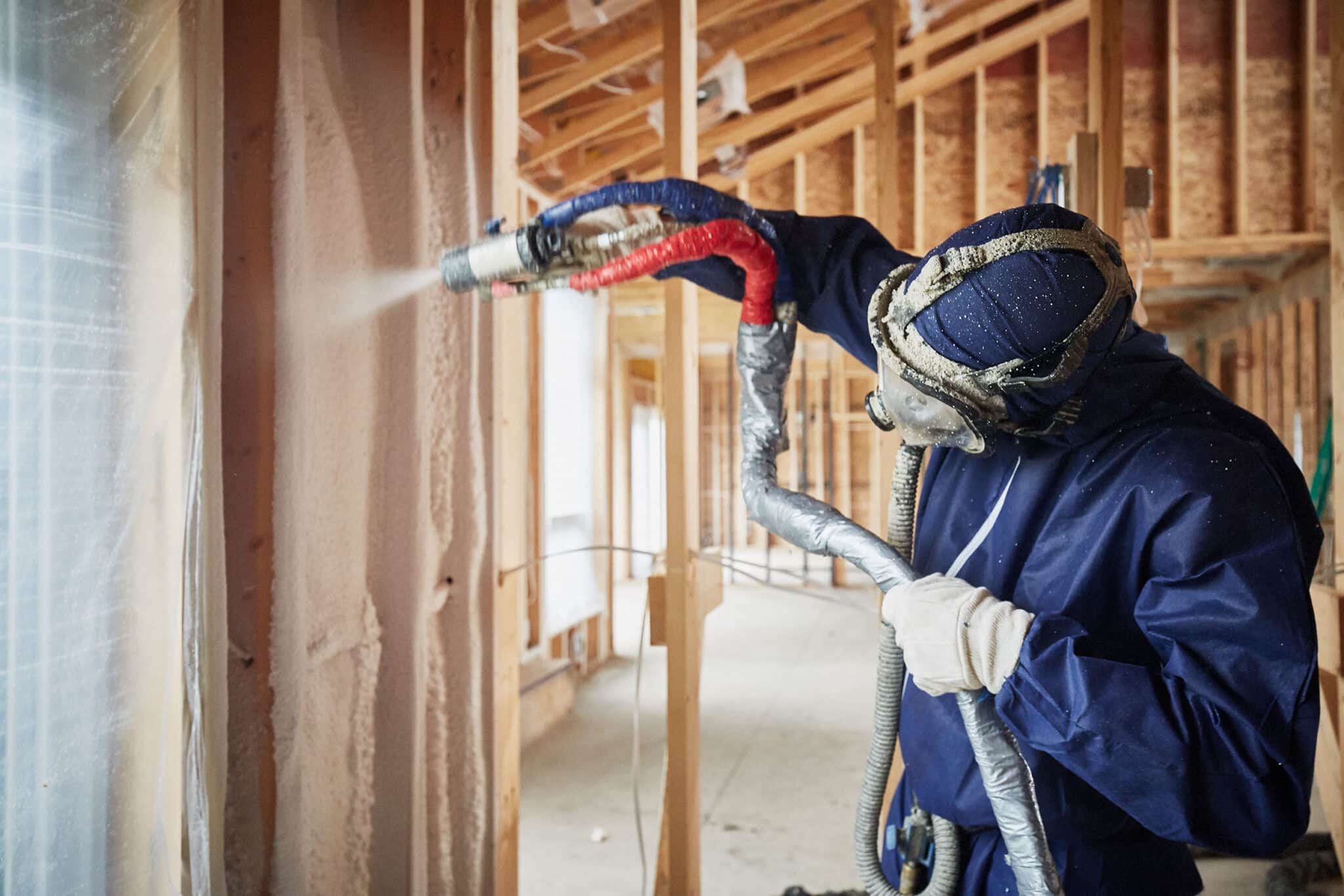How to Identify a Trusted Spray Foam Insulation Company in Bolingbrook, IL
This guide breaks down what to look for, how to compare providers, and why certification, training, and service scope play a direct role in long-term building health.

Spray foam insulation offers long-term efficiency and building performance, but only when applied correctly. Choosing the right spray foam insulation company in Bolingbrook, IL, can significantly impact the results. The difference between a high-performing installation and a costly do-over often lies in the team behind the foam. With energy codes tightening and property owners seeking more resilient building envelopes, vetting insulation professionals matters more than ever.
A trusted spray foam insulation company in Bolingbrook, IL will demonstrate proven material knowledge, local application experience, and a clear understanding of performance metrics. This guide breaks down what to look for, how to compare providers, and why certification, training, and service scope play a direct role in long-term building health.
Know the Traits of a Qualified Spray Foam Insulation Company
Spray foam insulation systems require more than just spraying foam. Precision application, product chemistry, climate-specific installation methods, and code compliance all demand experience. A professional team brings measurable value, preventing common issues like thermal bridging, off-ratio foam, and building envelope voids.
Experience and Technical Training Matter
A reliable spray foam insulation company in Bolingbrook, IL, will employ trained installers certified through nationally recognized programs such as the SPFA (Spray Polyurethane Foam Alliance). Teams with advanced training are more equipped to identify complex conditions like thermal bypass, air leakage zones, or moisture traps before application begins.
Look for:
-
SPFA-certified installers
-
Ongoing training in building science
-
Familiarity with both open-cell and closed-cell foam systems
Safety, Licensing, and Insurance
Always confirm that the insulation team is fully licensed for spray polyurethane foam work and carries appropriate liability coverage. This protects property owners from liability in the event of installation-related damage or safety violations during on-site work.
Regional Knowledge Affects Application Success
Spray foam systems behave differently in variable climates. Bolingbrook’s seasonal humidity shifts, freeze-thaw cycles, and building code requirements influence the right material choice and thickness. A team with local experience will specify R-values and vapor control layers that support long-term performance in the area’s climate zone.
Differences Between Spray Foam Specialists and General Insulation Installers
Spray foam is a specialized material with a narrow margin for error. General insulation crews often lack the training or equipment for precision SPF applications.
Equipment and Process Standards
Top insulation companies use proportioners that deliver accurate component ratios, heated hose systems to manage ambient conditions, and ventilation setups for safe indoor application. Specialists who invest in equipment demonstrate a commitment to high-performance outcomes.
Field Testing and Quality Control
Look for teams who perform:
-
Blower door testing to detect air leakage
-
Thermal imaging to identify insulation gaps
-
Core sampling or adhesion tests to verify material bond
These tools confirm whether insulation is correctly applied and performing as expected.
Evaluating Product Knowledge and Brand Use
Not all spray foams are the same. Some off-brand materials offer lower up-front costs but suffer from shrinkage, poor adhesion, or reduced thermal stability over time.
Recognizing Trusted Spray Foam Brands
A professional insulation company will specify closed-cell or open-cell foam from respected manufacturers tested for air seal integrity, aged R-value retention, and compliance with ASTM standards. Look for products with ICC-ES reports and third-party performance verification.
Performance vs. Price: What to Watch
|
Evaluation Area |
High-Performance Brands |
Generic/Low-Grade Brands |
|---|---|---|
|
R-Value Retention |
Stable over 10+ years |
Often degrades with time |
|
Adhesion Quality |
Bonds tightly to substrates |
Risk of pulling away or delaminating |
|
Vapor Control |
Integrated performance ratings |
Unknown vapor permeability |
|
Fire Resistance |
Tested with intumescent coatings |
May lack rating documentation |
|
Warranty |
Manufacturer-backed |
Limited or no warranty |
Red Flags to Avoid When Hiring
Not all insulation companies operate with the same quality standards. Watch for signs that indicate inexperience or lack of professionalism.
Avoid companies that:
-
Are unwilling to provide product datasheets
-
Skip blower door or IR scan testing
-
Use general labor crews for SPF jobs
-
Ignore local building codes or R-value targets
Selecting the lowest bid without verifying materials, application methods, or inspection process often leads to failure down the line.
Spray Foam Services That Reflect Quality and Capability
A reliable spray foam insulation company in Bolingbrook should offer a wide range of services that support energy upgrades and long-term durability. South Chicago Insulation delivers comprehensive solutions aligned with local energy goals.
Residential Insulation
Air seal and insulate living spaces with spray foam that reduces drafts, lowers utility bills, and improves comfort year-round.
Commercial Insulation
Large-scale SPF systems tailored for flat roofs, warehouses, retail, and mixed-use buildings requiring high thermal resistance and durability.
Retrofit Insulation
Upgrade existing homes and buildings by sealing old gaps and cavities, improving energy performance without major renovations.
Spray Foam Roofing
Seamless insulation systems applied directly to low-slope or flat roofs. Prevents leaks, reduces solar heat gain, and extends roof life.
Roof Coatings
Protective coatings for foam roofs or aging surfaces to enhance UV resistance and prevent weathering.
Attic Insulation
Closed-cell or open-cell foam applied to attic floors, knee walls, or roof decks to stop heat loss and moisture migration.
Crawlspace Encapsulation
Complete vapor control with closed-cell spray foam on walls and floors to prevent moisture, mold, and air quality issues.
Home Performance Evaluation
Diagnostic testing such as blower door, IR imaging, and airflow mapping to measure insulation gaps and airflow paths.
Sound Attenuation Insulation
Spray foam used in wall cavities and ceilings to reduce sound transmission between rooms or units.
Pole Barn Insulation
Spray foam systems applied to metal structures, helping manage condensation and indoor temperatures in unconditioned spaces.
Intumescent Coatings
Fire-rated protective coatings applied over foam insulation where required by code for exposed applications.
Blown-In Insulation
Fiberglass or cellulose materials used for attic fills or wall retrofits when spray foam isn’t appropriate.
Commercial Spray Foam Insulation
High-density closed-cell insulation tailored for industrial facilities, hospitals, and commercial buildings requiring code compliance.
Residential Spray Foam Insulation
Home-focused systems using open-cell or closed-cell foam to meet budget, comfort, and energy goals.
Conclusion
Choosing the right spray foam insulation company in Bolingbrook, IL requires more than comparing price quotes. Look for teams with proven training, region-specific experience, high-performance materials, and diagnostic capabilities. From residential attics to commercial roofing, the success of the system depends on more than just the foam—it depends on who applies it.
Ready to Achieve Energy-Efficient Indoor Performance?
Spray foam insulation helps reduce energy waste, seal hidden gaps, and improve air quality across all building types. South Chicago Insulation brings expert knowledge, field-tested practices, and a commitment to performance in every project.
Call (779) 803-8025 or email [email protected] to discuss your insulation needs or schedule a property evaluation.
FAQs
How can I tell if an insulation company is properly certified? Check if the company employs certified Spray Foam Master Installers through programs like SPFA. Certifications ensure the team understands building science, material chemistry, and safe application techniques.
Are all spray foams suitable for Bolingbrook's climate? No. Closed-cell and open-cell spray foams perform differently in humid or freezing conditions. Local experts adjust thickness and vapor control layers based on the area’s specific weather patterns.
Can insulation issues cause indoor air problems? Yes. Improperly applied foam can trap moisture, leading to mold. Quality insulation teams evaluate ventilation and use materials that improve—not compromise—air quality.
Is open-cell or closed-cell foam better for energy efficiency? Closed-cell foam offers higher R-value and moisture resistance, making it ideal for crawlspaces and exterior walls. Open-cell is often preferred for interior walls and sound control.
What should be included in a proper insulation inspection? A complete inspection includes visual checks, infrared imaging to find voids, and blower door testing to measure air leakage. It verifies that spray foam performs as expected.
Author: Bob Gasca attended his first spray foam training in 2007 and has continued to pursue yearly training to stay current with the latest technology and practices. He is a certified Spray Foam Master Installer through the SPFA and a member of the SPFA. Additionally, Bob serves as a Spray Foam Worldwide Ambassador, sharing information with spray foam professionals globally. Recently, he returned from a building science training, where he expanded his knowledge on how weather conditions affect home performance, helping him better diagnose and improve home health for families. Bob specializes in finding solutions to complex moisture and air infiltration issues.
Reviewer: Noah Gonzalez reviewed this article and drew on 9 years of experience to offer suggestions that make the guidance more directly useful for insulation contractors.
What's Your Reaction?
 Like
0
Like
0
 Dislike
0
Dislike
0
 Love
0
Love
0
 Funny
0
Funny
0
 Angry
0
Angry
0
 Sad
0
Sad
0
 Wow
0
Wow
0



















































